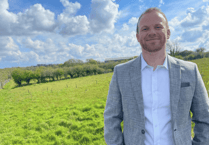Cornwall and the Isles of Scilly’s housing crisis reaches centre-stage in Westminster this week. All six Cornish MPs and fellow sector delegates will meet Housing & Planning Minister, Matthew Pennycook. The meeting was secured earlier this year when I challenged the Prime Minister to put right a system his government inherited from the Conservatives, where over £500-million of taxpayers’ money has been handed to holiday home owners in Cornwall in the last decade, while the housing crisis for local families has reached its worst state in living memory.
I’m urging the Minister to: 1. end the multi-million tax loophole bonanza for second homeowners who’ve flipped their properties to the holiday letting where they pay no tax; 2. introduce planning restrictions on homes being used as second or holiday homes; 3. establish a register of holiday lets and Air bnbs; 4. permit Cornwall to set housing development targets to meet local need rather than (as now) developers’ greed; 5. help unlock the shovel-ready projects with planning permission which could now deliver thousands of homes for locals which families across Cornwall and Scilly desperately need; and 6. to help secure the investment needed to grow the capacity and skills base of Cornwall’s construction sector.
On the day (April 1) the government finally implements the policy of doubling council tax on second homes, our delegation will be urging the government to go further. As I often point out, this isn’t about the politics of envy. It’s simply the politics of social justice. We live in a free country where people should of course be free to purchase more homes for their personal use than they need, but we should also have the freedom to use tax, planning and other tools in an attempt to balance the impact of the market-distorting and accommodation-restricting consequences of those investment choices.
Registered Nurses are the backbone of our NHS. They’re often invisible because most patients find it difficult to distinguish the difference between them and the (equally remarkable and invaluable) un/semi-trained care assistants who usually work alongside them. They’re the highly qualified clinicians who use a range of observational and technical skills to pan, evaluate and deliver the care we need when we’re often at our most desperate and perhaps least observant state.
We should ask ourselves if they would be quite so badly paid and poorly treated if the profession had been predominantly male rather than female. It’s shocking to find that some now depend on foodbanks; thanks to the Conservatives, thousands are now saddled with student debt; and most nurses can expect never to have their pay and status raised above Band 5, which has a maximum pay of £35,000. Allied professions (such as Paramedics and Physiotherapists) usually quickly progress to Band 6 and beyond.
I raised this with Health Secretary Wes Streeting in the Commons last week. Though I know he cares about this, it’s obvious he can’t turn around this clear injustice overnight.




